Until just a few years ago, the Lesotho National Drug Service Organization (NDSO) was facing challenges that impacted its ability to consistently deliver on its mandate.
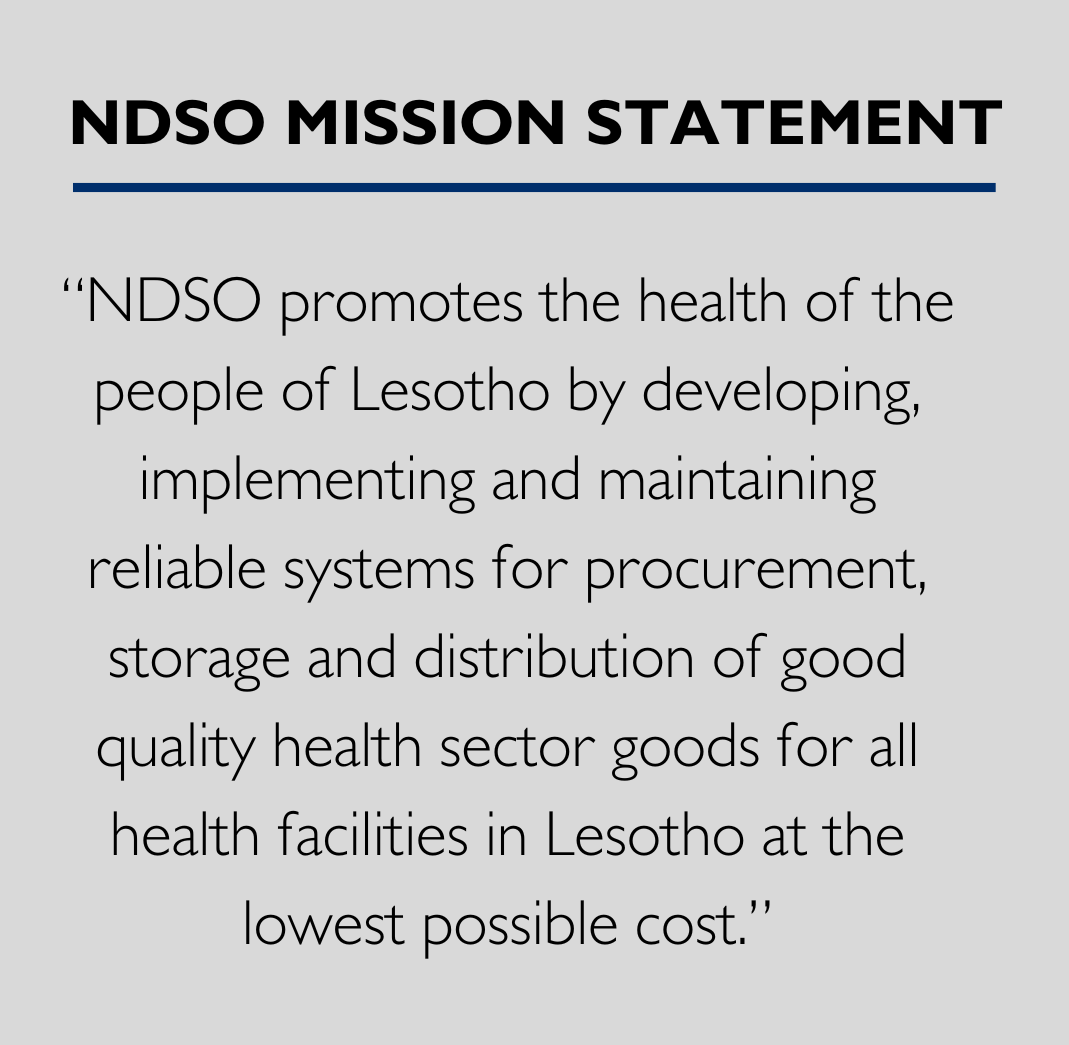
A crucial component of Lesotho's healthcare system, the NDSO was facing operational challenges and funding constraints that led to stockouts and shortages of critical medicines, hindering its ability to fulfill its mission.
Now, the NDSO has become the benchmark for other countries in Southern Africa and beyond. They have become the standard bearers of how to successfully apply private sector practices to their health supply chain.
How did the NDSO develop into the successful, self-financing entity it is today?
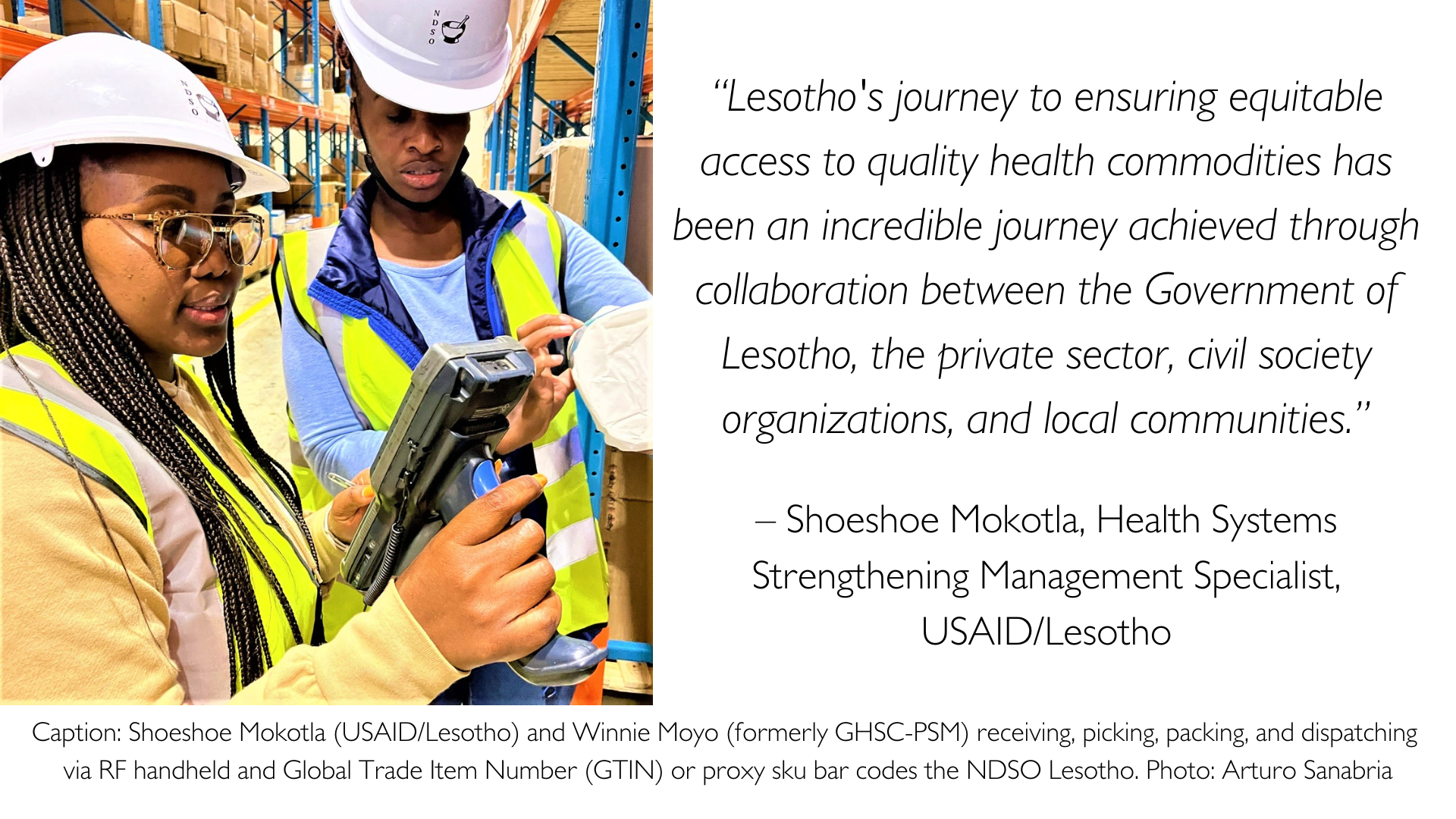
The goal was to identify opportunities to streamline processes, achieve cost efficiencies, and enhance performance.
The first step was to better understand their overall operating expenses. In 2016, with support from USAID, through the USAID Global Health Supply Chain Program-Procurement and Supply Management (GHSC-PSM) project, the NDSO began applying the activity-based costing (ABC) activity-based management (ABM) model. ABC/ABM is the commercial supply chain methodology widely used by private-sector organizations to help operators understand their inefficiencies and highlight where they are wasting money.
Once described as ‘turning the lights on’ for an organization, the ABC model illuminates each cost component, giving NSDO management a clearer picture of their operating costs at the financial, distribution center, transportation, and customer service levels. This allowed the NDSO to assign costs to health commodities and services based on the resources and activities they consume.
With a clear understanding of operating costs, NDSO senior managers could enhance efficiency and reduce expenses, ultimately eliminating losses without raising prices.
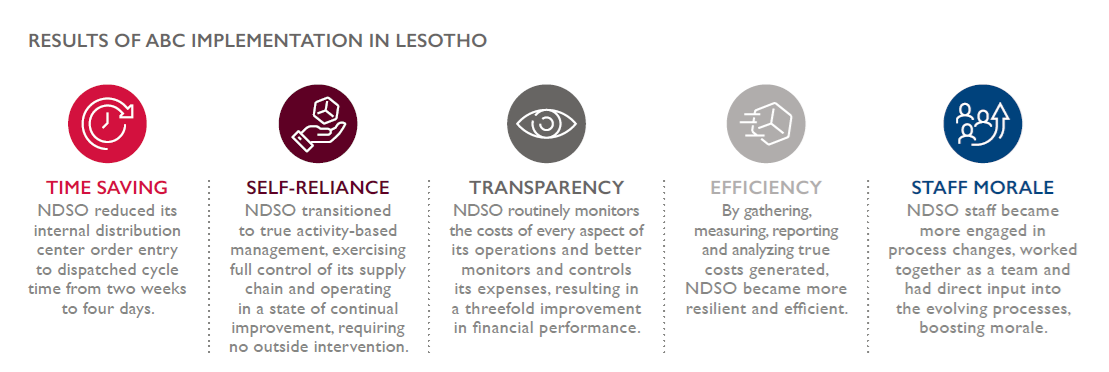
Senior management worked hard to assure staff that improving patient outcomes was the only motivation. Conversely, the increased efficiency led to improved staff morale, a culture shift that has led to less staff turnover and a commitment to promoting from within.
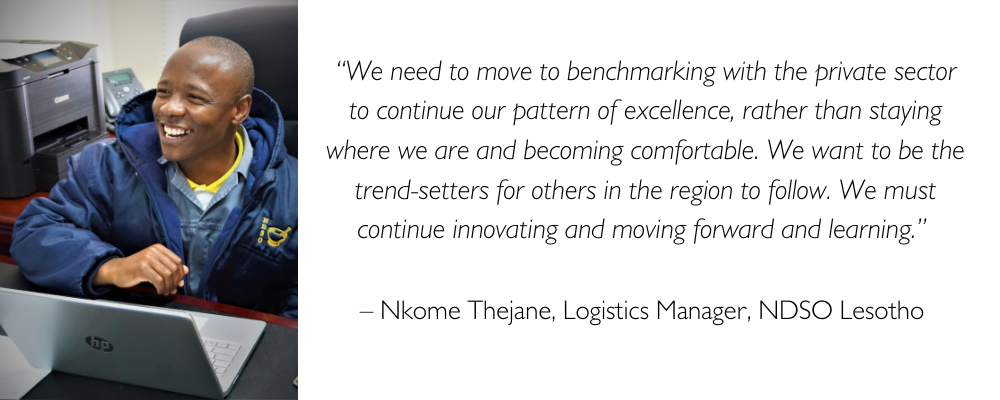
The NDSO are now self-sufficient, not only maintaining the gains but continuously improving and operating at a private-sector level. As Mr. Nkome Thejane, Logistics Manager at the NDSO explained, the organization is now looking to measure the NDSO’s performance against commercial sector entities. This will not only drive standards even higher but demonstrate the power of ABC/ABM.
The NDSO is influencing the health supply chain beyond Lesotho’s borders.
The NDSO is clearly setting the standard for other countries to follow and are eager to share their journey with their Africa neighbors. This triangular cooperation has led NDSO management to share their journey with representatives of central medical stores in Botswana, Eswatini, Namibia, Uganda, and Kenya.
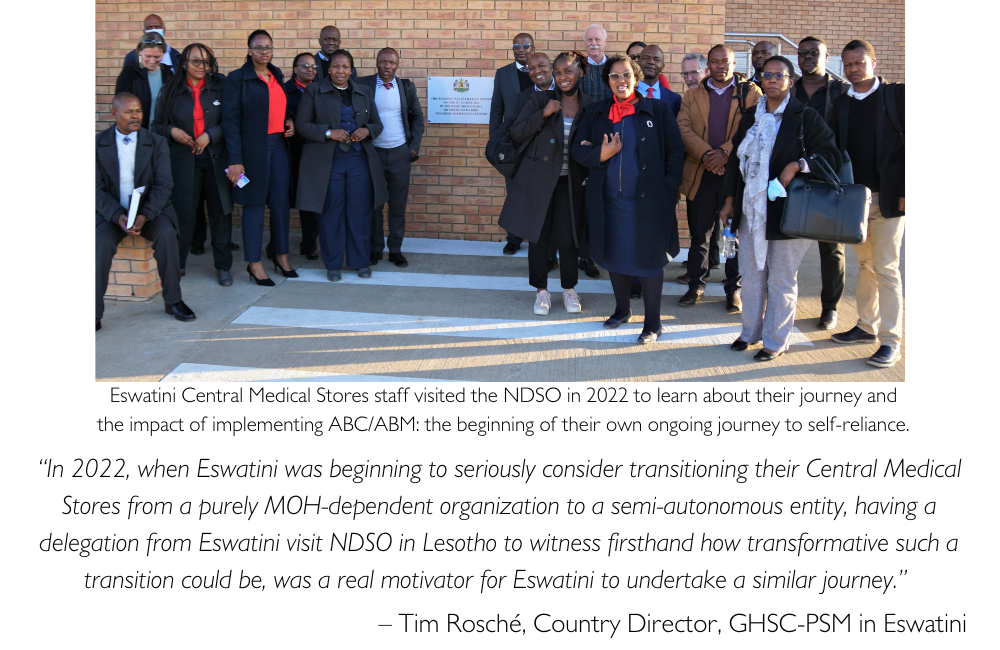
Mr. Thejane is not only integral to the success of the NDSO but also an enthusiastic advocate of the benefits of ABC/ABM. In 2023, he traveled to Eswatini with NDSO and GHSC-PSM to present to the Prime Minister and Cabinet of Eswatini, an amazing opportunity where he described his experiences with senior government ministers.
The Government of Eswatini and senior management at the Ministry of Health now fully support the transition. While the necessary legal framework is being put in place, USAID and Global Fund are committed to further strengthening Central Medical Stores warehousing operations performance in preparation for its new mandate.